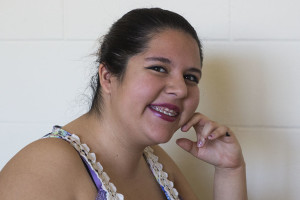Tags
Related Posts
Share This
Words on Word of the Year
On Jan. 8, the American Dialect Society sat down for a meeting to decide 2015’s “Word of the Year.” The society chooses each year’s word after the year has passed. While there were many other contestants up for the title, including “ammosexual,” “Thanks, Obama,” and “On fleek,” the singular they was chosen with 187 votes. The American Dialect Society has officially defined the word they as a “gender-neutral singular pronoun for a known person, particularly as a nonbinary identifier.” This is a huge win for the transgender community, many of whom are gender noncomforming or nonbinary and use they/them pronouns.
While the American Dialect Society says the use of the singular they ”builds on centuries of usage, appearing in the work of writers such as Chaucer, Shakespeare, and Jane Austen,” and the Washington Post adopted it into its style guide in 2015, it isn’t until recently that the word has garnered attention from the general public. We sat down with a few SFUAD students to ask them what they thought of the word they.
Jackalope Magazine: What do you think of the Word of the Year?
Shelby Criswell, junior Studio Arts major: “I think the decision was a smart move because it will direct people’s attention to trans/genderqueer issues and the fact that they can be used singularly and doesn’t go against grammar or anything like that. It’s important not only because of pronoun awareness but because it will open up new doors and conversations surrounding pronouns and how we are shifting as a society…”
Michelle McIntire, senior Theatre Performance Major and Colors president: “I think that’s wonderful! It’s a real nod of support to everyone who uses they/them pronouns. I think that it’s indicative of a cultural shift toward acceptance of the trans community. I used they/them pronouns for a while. Granted, for me it was kind of an outlet for me to figure the fact that I am a woman but I know for a lot of people it’s a very solid and important identity…I think it’s great.
“[A] big problem in our community was that no one would recognize they/them pronouns and no one would even try because [they would say,] ‘That’s not grammatically correct!’ And now technically it is! I mean YOLO’s in the dictionary. I don’t understand why people have such a hard time using they/them pronouns. Obviously the singular they is not the most common way to refer to someone—it’s actually a pretty new thing—but it’s the effort that makes the difference and I kind of wish people understood that.”

Ashley Castenda. Photo by Jason Stilgebouer
Ashley Blanche Castañeda, junior Film Major: “It’s a big leap from what they usually choose: all these catch phrases and things that aren’t really important…but they is a big thing. I really like that because it will help people of all ages. Even young people will understand how to approach someone and ask for their pronouns…When I first heard the word I thought, ‘This is really good because some people don’t identify with [he or she]. This is good!'”
KT Collins, senior Film major and Colors vice president: “I think that it’s a good thing. I think it’s a step towards progress and representation because a lot of times people don’t like to think that using a singular they is correct grammar…but it’s been done for hundreds of years…I feel like trans and nonbinary identities have been a little bit more represented lately and so I think people are starting to be more forward about using singular they pronouns. I think that [the Word of the Year decision] just gives a little more clout [respect] to [the singular they] in a way that people might take it seriously now in a way that they hadn’t before…I would hope that it’s going to make changes like that, that’s it’s going to make people think ‘Oh yeah, if it can be considered Word of the Year then these identities are actually valid.’
“The thing is that I don’t think it boils down to a matter of, ‘Well this institution says that it’s OK to do that.’ I think it boils down to basic respect and if someone wanted to be referred to by ‘pizza’ or something, it’s basic respect to refer to that person as they want. I think that people who identify using [they/them] pronouns [the Word of the Year decision] is great for them, but I’m concerned it won’t do much. I think it won’t change people’s minds who were already opposed to using singular they pronouns, but hopefully it will.
“I just don’t understand the whole grammar argument [against using the singular they] because then you’re putting silly laws that we invented for writing above someone’s humanity and someelse’s expression and what makes someone feel respected and safe and comfortable. Whether that person’s close to you or not, it’s bizarre that you think that an arbitrary list of rules that people break all the time—and this isn’t even breaking the rules—is more important than someone’s humanity.”

Charles Simon. Photo by Jason Stilgebouer.
Charles Simon, junior Business of Arts Management: “In the recent past, I’ve been into a whole new way of thinking, other than Western theology, so it kind of works with how I’ve viewed terms…I think it’s the beginning of change of how we’re viewing ourselves and the world around us and how much of an impact that makes when it’s the first time. I don’t really speculate in that realm of politics, I guess you could say, but…I’ve noticed that [the trans community] are kind of the headmasters of changing the future because they know exactly what their community is feeling and what they’re saying…This group of people that we refer to as they and them [are] down for [the Word of the Year decision] and they appreciate it. I definitely would if I was someone who needed my means to be understood. I would like somebody in my party or in my camp advocating day in and day out for something like that. I think it’s pretty positive.”

Otto Yunker. File photo.
Otto Yunker, freshman Film Major: “I think that it’s really cool. I have mixed feelings, but mostly that it’s really cool. On one hand, I feel like it doesn’t really mean too much because it doesn’t feel like it’s a word to me; it just exists. But on the other hand, it’s really cool because it raises awareness that it exists. It’s hard to tell people my pronouns are they/them when that’s not even a possibility to them. A lot of times I’ve settled for he/him pronouns because…it’s exhausting to fight for that all the time…If people hear about it and pay attention, it makes my life a little bit easier. It’s like I was walking through a jungle with a machete trying to cut down everything in my way and then all of a sudden I came across a portion of the path that was already cleared.”









 Jackalope Magazine is the student magazine of Santa Fe University of Art and Design. Building on the interdisciplinary nature of our education, we aim to showcase the talent of our university and character of our city.
Jackalope Magazine is the student magazine of Santa Fe University of Art and Design. Building on the interdisciplinary nature of our education, we aim to showcase the talent of our university and character of our city.
Recent Comments